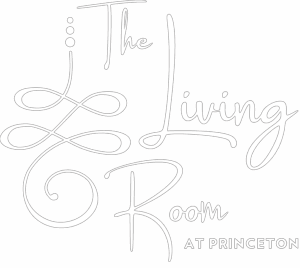Alcohol is ingrained into American society, so much so that you can find someone drinking at almost any social event you can think of. While occasional drinking is fine, some people have a hard time controlling how much alcohol they consume. If you or a loved one have trouble controlling your alcohol intake and deal with an unavoidable urge to drink, you could be struggling with alcoholism.
According to the National Institute of Alcohol Abuse and Alcoholism (NIAAA), 29.5 million people aged 12 or older struggled with an alcohol use disorder in 2021.[1]
While alcoholism can take over every aspect of your life, professional treatment can help you regain control. Unfortunately, many people avoid attending treatment because they are afraid of the unknown. However, alcohol rehab centers in New Jersey are designed with your needs and comfort in mind. While the idea of going to rehab may be scary, it’s an important first step toward transforming your life.
What to Expect During Alcohol Rehab in New Jersey
The goal of alcohol rehab is to help your body adjust to sobriety while teaching you healthy coping mechanisms to avoid relapse in the future. While there are many different ways to go about this, most alcohol rehab centers in New Jersey offer the same general services. This includes:
Initial Assessment
When you arrive at an alcohol rehab facility you will begin the initial assessment process. The medical staff will ask you questions about your substance abuse, mental health, physical health, and family history to determine your personal needs during treatment. The information gathered is then used to create an individualized treatment plan.
You might be asked a variation of the following questions:
- How long have you been using alcohol?
- How much alcohol do you consume in one day?
- Do you use any other substances?
- Do you have any diagnosed mental health conditions?
- Have you ever been to treatment before or experienced a relapse?
- Does your family have a history of mental health or addiction issues?
- Do you have any medical conditions that require ongoing treatment?
Medical Detox
Once your treatment plan is created, you will begin medical detox. The goal of detox is to rid your system of alcohol and any other substances while keeping you safe, comfortable, and medically stable. Since alcoholism causes symptoms of withdrawal, medications will be provided to limit the effects you experience and prevent you from dealing with cravings.
Symptoms of alcohol withdrawal may include:[2]
- Anxiety or irritability
- Fatigue
- Depression
- Shakiness or tremors
- Mood swings
- Insomnia or nightmares
- Trouble thinking or concentrating
- Excessive sweating
- Dilated pupils
- Nausea and vomiting
- Diarrhea
- Increased heart rate
- Seizures, fever, hallucinations, or agitation (delirium tremens)
The symptoms of alcohol withdrawal can become severe and life-threatening, so medical detox is a vital aspect of alcoholism treatment.
Individual and Group Counseling
Once you have successfully detoxed off of alcohol, you will begin the psychological and behavioral aspects of treatment. Individual and group counseling will be used to teach you how to deal with triggers, overcome cravings, and use healthy coping mechanisms to deal with uncomfortable emotions in place of substance abuse.
Reputable alcohol rehab centers in New Jersey use evidence-based therapies, which means the types of therapy they use are proven effective in managing substance use disorders.
Examples of evidence-based therapies for alcoholism include:[3]
- Cognitive behavioral therapy (CBT)
- Motivational interviewing (MI)
- Contingency management (CM)
- 12-step facilitation therapy
- Family behavior therapy
Relapse Prevention Planning
Before you complete your alcohol rehab program, you will engage in relapse prevention planning, a process that teaches you how to maintain sobriety outside of treatment. By collaborating with your therapist, you will identify triggers that are personal to you and come up with healthy coping mechanisms to overcome them. As a result, you will be equipped to deal with the obstacles life throws at you without feeling the need to return to alcohol abuse.
Examples of relapse prevention strategies taught during alcohol rehab in New Jersey include:[4]
- Overcoming negative self-talk with therapy
- Repairing your relationships and making amends
- Becoming comfortable with feeling uncomfortable
- Improving your self-care habits and incorporating them into daily life
- Developing a balanced and healthy lifestyle
- Engaging in self-help groups regularly
- Developing healthy alternatives to alcohol abuse
Aftercare Services
Completing an alcohol rehab program does not mean that recovery is over. Because you will have to continue to manage your substance use disorder, reputable alcohol rehab centers in New Jersey offer aftercare services to their alumni. These services ensure that you continue to have access to the support and tools you need to maintain long-term sobriety.
Examples of aftercare services offered in New Jersey include:
- Continued attendance at therapy
- Medication management
- Access to alumni support groups
- Referrals to sober living homes
- Recommendations on local support groups to attend like 12-step meetings
- Case management services like vocational, housing, medical, and legal assistance
Start Your Recovery at our Alcohol Rehab Center in New Jersey
Alcoholism can be difficult to overcome, especially if you are trying to recover on your own. Thankfully, alcohol rehab programs in New Jersey are ready to help you beat alcohol addiction once and for all.
The Living Room at Princeton is first and foremost a team of gifted, and highly committed professionals, each dedicated to living in the solution that we invite you to experience. With a focus on individual, group, and family therapy, our team facilitates the heart-felt experience of understanding, compassion, and respect. We have learned to accept and celebrate our own humanity, and as such we are uniquely capable of introducing you to the same.
To learn more about our highly New Jersey alcohol rehab programs, contact The Living Room at Princeton today.
References:
- The National Institute of Alcohol Abuse and Alcoholism (NIAAA): Alcohol Use Disorder (AUD) in the United States, Retrieved September 2023 From https://www.niaaa.nih.gov/alcohols-effects-health/alcohol-topics/alcohol-facts-and-statistics/alcohol-use-disorder-aud-united-states-age-groups-and-demographic-characteristics
- Medline Plus: Alcohol withdrawal, Retrieved September 2023 From https://medlineplus.gov/ency/article/000764.htm
- The National Library of Medicine (NLM): Evidence-based practices for substance use disorders, Retrieved September 2023 From https://www.ncbi.nlm.nih.gov/pmc/articles/PMC3678283/
- The National Library of Medicine (NLM): Relapse Prevention and the Five Rules of Recovery, Retrieved September 2023 From https://www.ncbi.nlm.nih.gov/pmc/articles/PMC4553654/

